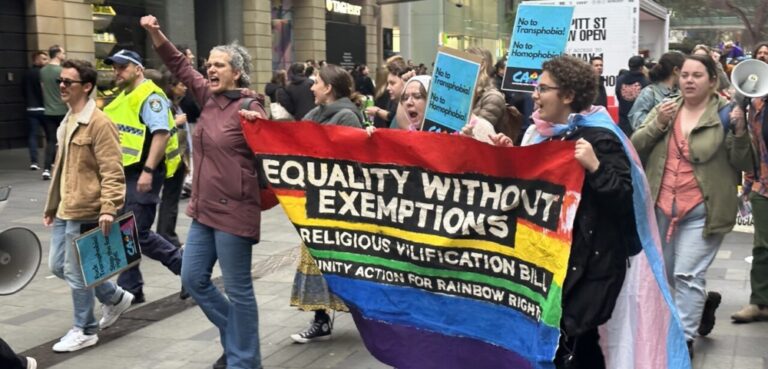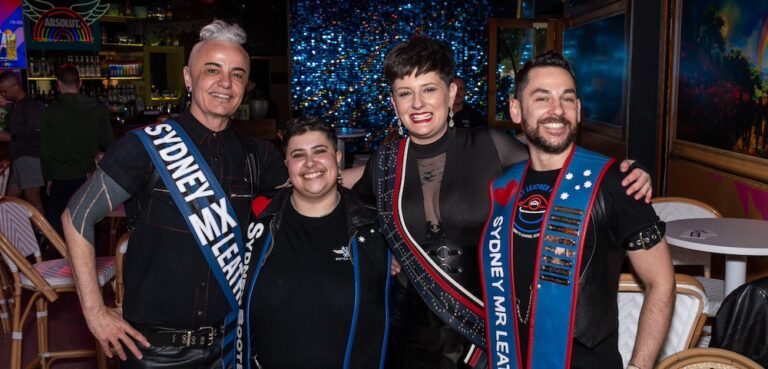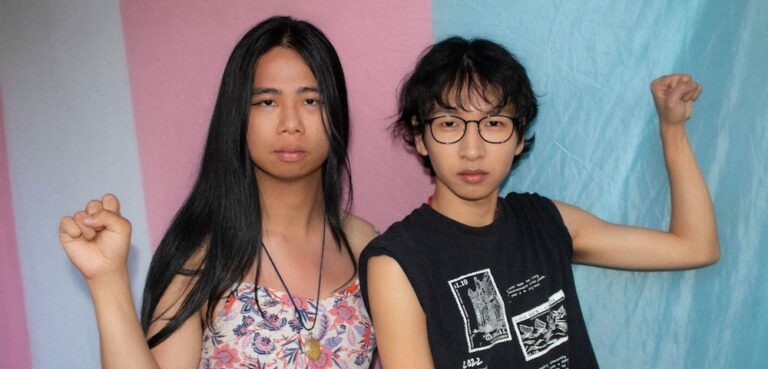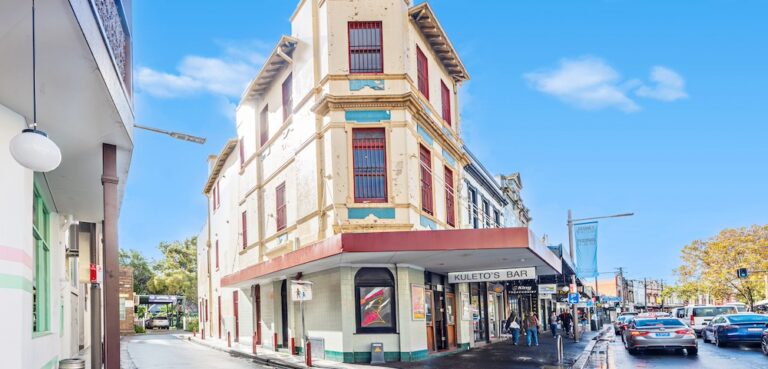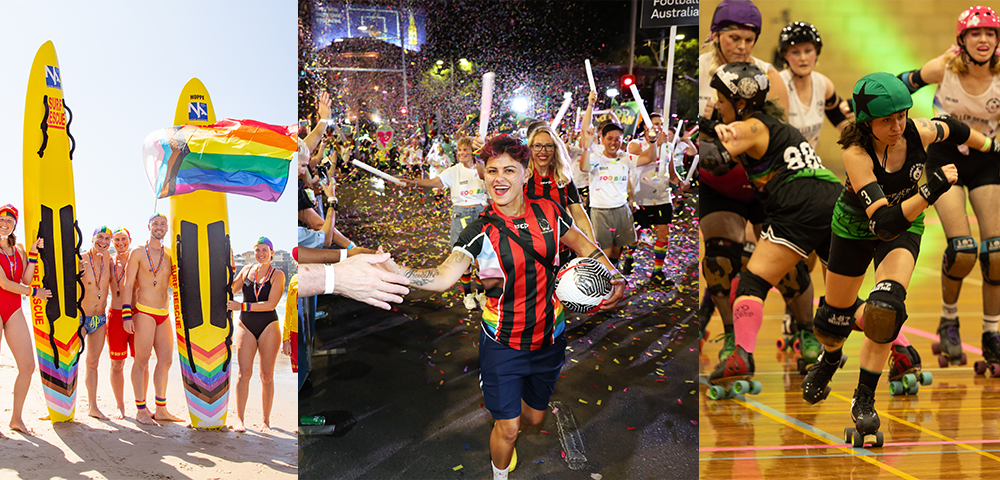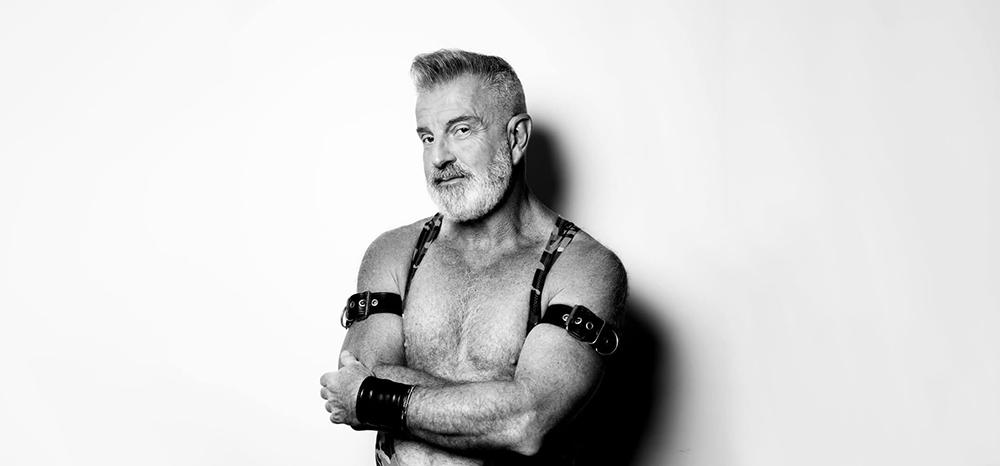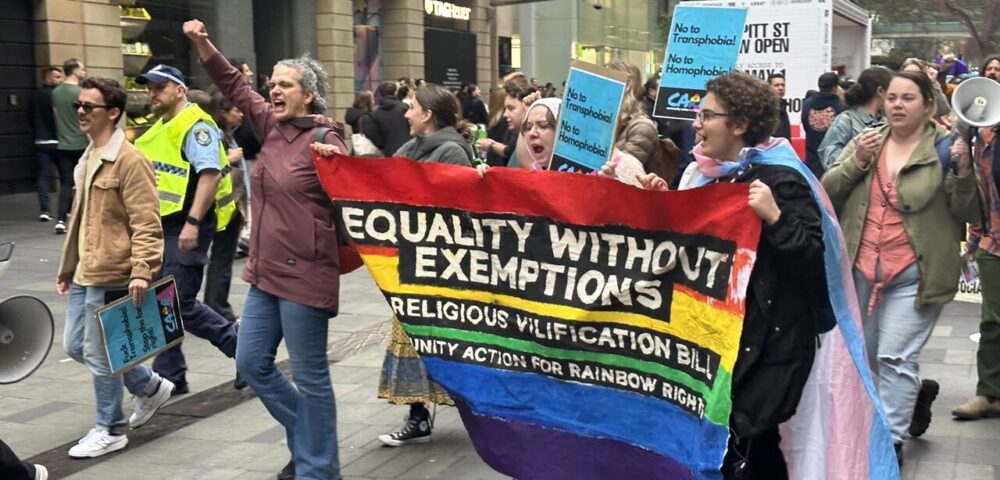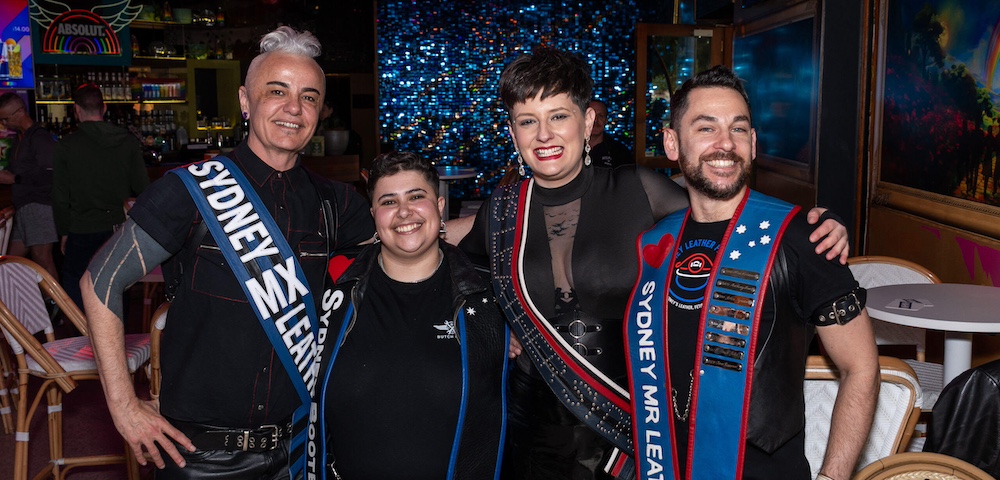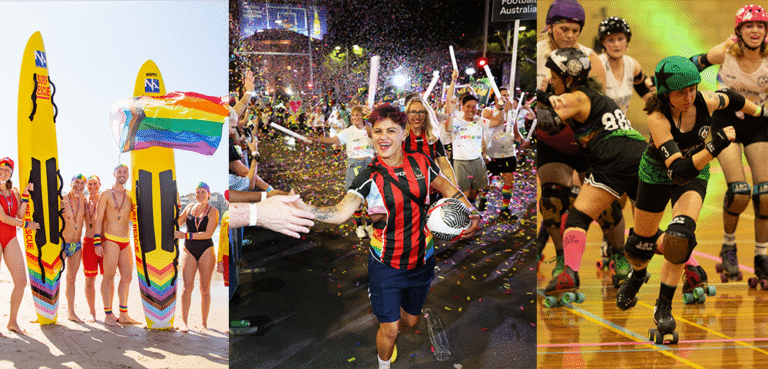
The generation gap
Amid the usual frivolity, one float in the 2004 Mardi Gras parade caught the eye for its overtly political stance.
With other participants content to camp it up for the Oxford Street crowd, marchers on the There Were Queers In The 50s Too, John float took aim at the prime minister and his regressive social policies.
It was the sort of biting satire usually based on bitter experience. But its marchers weren’t diehard 78ers or activists who had waged decades-long law reform battles.
They were teenagers and 20-somethings, politically aware university students who had put together a cross-campus float to take on the gay and lesbian issues of the day.
The students were at it again this year, marching in a Gay Skool entry inspired by the 2004 Play School fiasco, in which politicians slammed the children’s television program for depicting two lesbian mothers and their daughter.
Those entrants made Mardi Gras their own. But not all members of the new generation agree the parade is crucially important to their lives.
Trent Ellerington, the 2004 University of NSW queer convenor and current convenor of NSW activist body the Queer Students’ Network, helped out with this year’s student floats.
But the 20-year-old didn’t march this year, and suggested New Mardi Gras’s relevance to politically aware youth had slipped.
It’s kind of lost its political soul -“ it used to be about a shout of defiance to wider society, that queer people exist, Ellerington said.
Now a lot of gay and lesbian and straight people just see it as a reason to party. We do deserve a time to let your hair down, but Oxford Street is no longer a shout of defiance. It’s a well-worn path. There’s nothing really political in marching up there any more.
New Mardi Gras could better connect with young people by staging marches outside the traditional inner-city setting, thereby raising visibility, Ellerington said.
It’s supposed to be Sydney’s Gay and Lesbian Mardi Gras -“ not Darlinghurst’s or Surry Hills’. I think young people would like to see a purpose to Mardi Gras, rather than just having a party.
Michael Wilson, who founded influential gay and lesbian youth website Mogenic.com as a 16-year-old, agreed New Mardi Gras needed to shift its focus to keep young people interested.
It’s more of a party that happens once a year that is amusing and entertaining to attend if you want, Wilson said.
We don’t think about it until we see an ad [for it] and think, -˜Do you want to go to that?’ There are parties everywhere. We go to parties at the drop of a hat -“ enough of that.
We’re more interested in the workshops, the exhibitions, more of the community grassroots [events].
Wilson’s assessment of young people’s relationship with New Mardi Gras was bleak.
We’ve all been educated in the roots of Mardi Gras, what it did and the people behind it, but now it doesn’t do that.
We [young people] live in a world without Mardi Gras.
The student marchers at this year’s parade would disagree, of course. Gay and lesbian youth worker David Moutou suggested the presence of floats like Gay Skool was proof enough New Mardi Gras was engaging with younger people.
That’s a big sign that young people are still interested in the politics of the event, Moutou said.
To finally have made it to [a parade] is still a big thing. What it means for them is that opportunity to be explicitly proud, and happy about who they are and where they’ve come from.
New Mardi Gras itself has claimed youth interest was still strong. Young people became involved in various Working Groups and also as volunteers. Plans were under way to incorporate elements designed by young people, for young people, at season events in next year’s festival.
But what if young people loyal to the cause were the exception, as those like Michael Wilson have argued?
Another young activist, Annaliese Constable, offers one solution.
Constable marched with the student floats this year and strongly defended New Mardi Gras’s youth relevance, saying the onus was on young people to get involved.
If people aren’t finding something that’s relevant to them, maybe they’re not looking hard enough, or [maybe] they should get involved to make it relevant to them, the 24-year-old said.
New Mardi Gras could help out to some extent by reserving a board position for a young person and educating youth about community history, Constable said.
More events which highlight to young people how and why Mardi Gras came about are vital in engaging long-term interest in an event which is indicative of our community’s past struggles, she said.
Ultimately, however, it was up to young gay men and lesbians to make the iconic community organisation their own.
I kind of see the ball as being in the young people’s court at the moment -“ there’s space for involvement and we’re not taking up that space. If you’re not happy with something, you need to get involved in it and change it.

